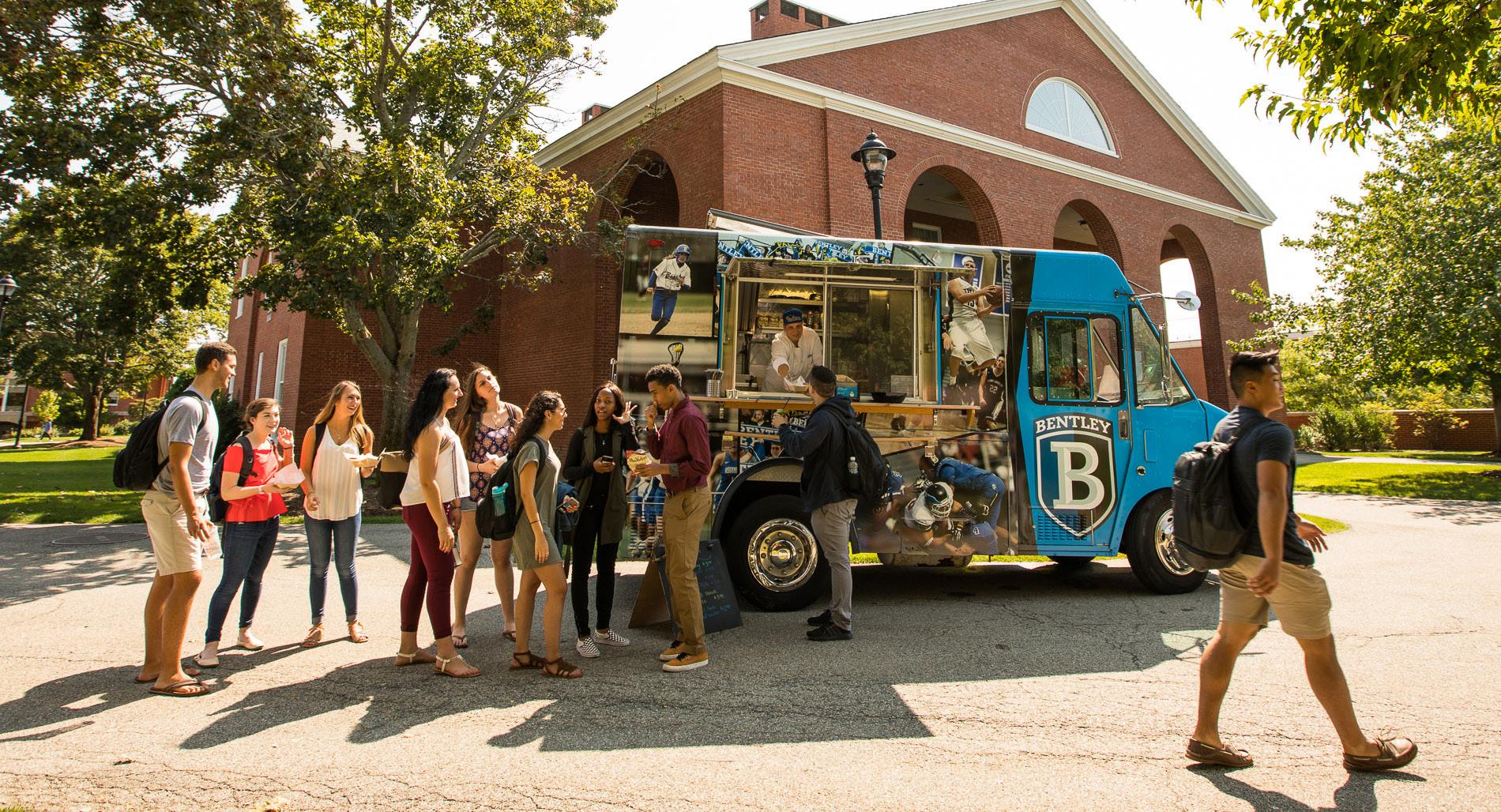
4 minute read
Table of Contents
In the timeline of diversity and inclusion efforts at Bentley University, the creation of the Racial Justice Task Force will mark a critical development. Coming at a time of racial reckoning across the country, this community change initiative provided a source for healing, honest examination, and clarity. Rather than tearing us apart as a community, the painful stories of racial discrimination and bias shared by black, indigenous, people of color (BIPOC) through town halls, listening sessions, and social media accounts gave us an opportunity to reaffirm our desire to build a University committed to equity and justice for all racial groups. The power of this Task Force coming together is not the creation of this document but rather the journey we took and the ways we engaged the community along the way. As a result, this document that summarizes our discoveries may be unlike what this community has seen before or come to expect.
Advertisement
Amanda Gorman
“The Hill We Climb”, 2021 Presidential Inauguration Poem
Represents a narrative about the process of discovery this Task Force engaged in, not just a list of policy or practice
recommendations. While there are calls to action contained in this document, we have chosen to emphasize the process that led to these insights as a way to demonstrate the power of thoughtful, brave, and deliberate reflection and dialogue to influence the campus in meaningful ways. We have also included reflections on the journey to highlight how we evolved in our understanding of race and racism at Bentley throughout the process.
Provides an honest and unvarnished examination of who we are in this moment, not a sanitized view of where we hope
to go. The truths about our culture that are revealed here generally do not get discussed, although we all recognize the ways in which they operate on campus. We believe that the only way to transform the University is to acknowledge and confront the ways in which our culture perpetuates an environment where racism can thrive. Demonstrates the continuation of the work, not the end of our work. The calls to action contained in this document are not “one and done” fixes but rather areas for sustained investment that will pay dividends far into the future. We recognize that we are not starting from zero, but that we have a foundation supported by our values and often championed by individuals of color that will benefit us in taking real action. The systemic changes recommended build on the foundation laid over the more than 100 years of our development as an institution and honor all of those who have poured their time and energy into diversity, equity, and inclusion efforts in the past. Calls the University and individuals in the community to act, but does not provide an implementation plan. As a volunteer Task Force, we were given a very broad charge to explore how racism was operating at Bentley and to identify ways to systematically address the impact of racism on campus. We believe that by naming the culture, creating spaces for healing and dialogue, and identifying areas for investment we have maximized our influence but that ultimately we do not have authority to make decisions or change policies. This document, therefore, acts as a guide and resource to help move the University forward. Encourages everyone to contribute, not a hierarchical view of who is responsible for change. We believe everyone — students, faculty, staff and alumni — has the power to affect change on our campus. Rather than a list of specific tasks, we highlight broader areas for sustained investment to allow each of us to identify where we will contribute. We also provide resources to ensure people are equipped to engage in the work no matter how they are affiliated with the University. The aspiration statements and areas for investment included later in this document will provide a reference point for all the work that is to come.
This may be a static document but the discoveries contained within it should continue to live on to ensure that we act on what we have learned. The insights that are contained here are the result of sustained conversation and examination. As we continue to evolve through our actions to become a more actively anti-racist community we will gain an even deeper understanding of the ways race impacts our community and effective approaches to counter these impacts. We must commit to regularly updating our progress, including our actions and discoveries, to avoid forgetting all that we have learned. True organizational transformation depends on our willingness to use this experience as a catalyst for further change rather than seeing it as an ending to a painful time in our history.
In her 2021 presidential inauguration poem, “The Hill We Climb”, Amanda Gorman offered these words to the nation.
“And yes we are far from polished/ far from pristine/ but that doesn’t mean we are/ striving to form a union that is perfect/ we are striving to forge a union with purpose.”
Let this be a call to us as well. What we are trying to achieve does not require us to have everything detailed and defined but rather to recognize and acknowledge our imperfections and move forward toward racial equity and justice anyway. If we allow this moment to pass without taking real action then,
“our inaction and inertia/ will be the inheritance of the next generation.”






